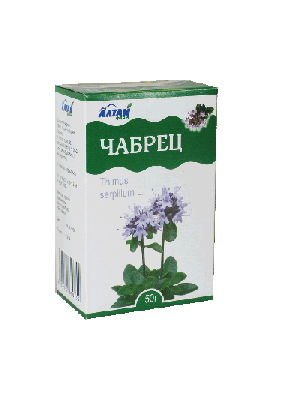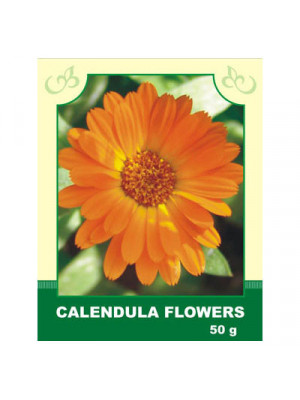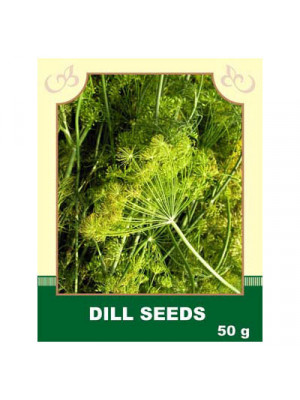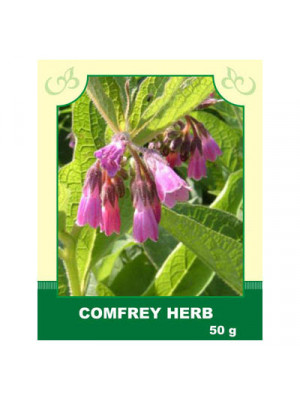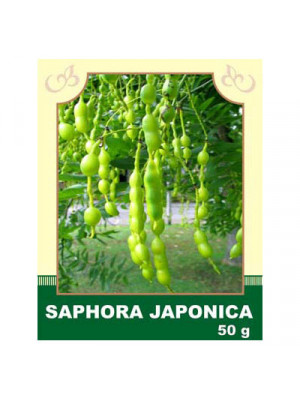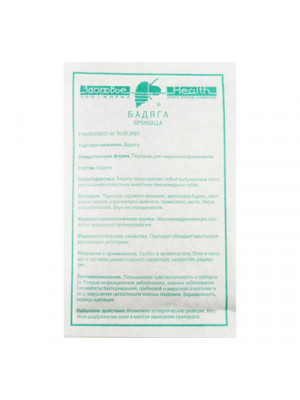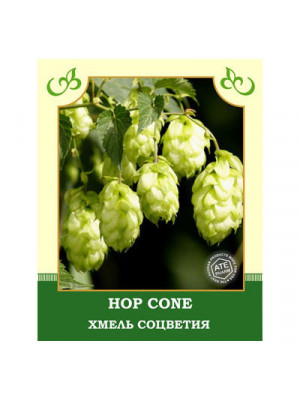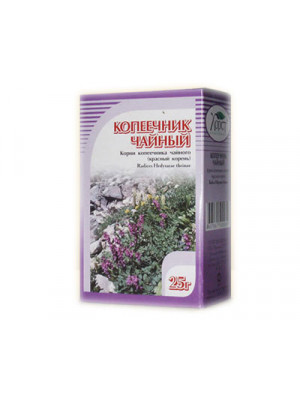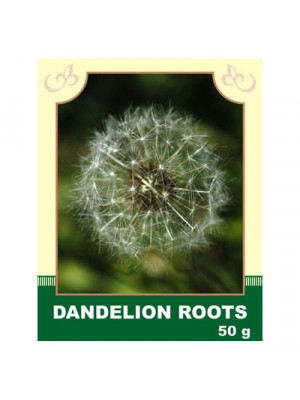Herbs
Folk Application: Infusion of hyssop is used to rinse the oral cavity for headaches and dandruff, as well as to gargle to eliminate bad breath.
Internally: Taken as an expectorant and anti-inflammatory agent for cold cough, bronchitis, pulmonary tuberculosis, and other upper respiratory tract diseases. Also used for insomnia, shortness of breath, women's diseases, chest and tooth pain, abdominal pain, and as a remedy for hangover and anthelmintic for the expulsion of tapeworm.
Method of Application and Dosage:
- 15 g of raw material is poured with 200 ml of boiling water, infused for 20-30 minutes, strained, and taken 1 tablespoon 3 times a day.
- Cough extract: 2 tablespoons of raw material are poured with 0.5 cup of boiling water, evaporated over low heat to half the original volume, strained, squeezing the remaining raw material, taken 1 tablespoon (better with honey) 3-4 times a day.
External Application: Baths and compresses from the infusion of the plant are used as an analgesic for joint and muscle rheumatism, paralysis, bruises, tumors. The herb is also used for refreshing aromatic baths. 4 tablespoons of dry herb are infused for half an hour in a closed container in 1 liter of boiling water.
Contraindications: Individual intolerance, peptic ulcer, liver and kidney diseases, pregnancy.
External Application: In the form of baths, compresses, and poultices. It helps dry the affected area of the body and promotes rapid skin healing. The infusion is useful for washing the head with seborrhea.
Preparation:
- 30 g of herb is poured into 1 liter of boiling water, strained, and added to the bath.
- 3 tablespoons of herb are poured into 400 ml of boiling water, boiled for 10 minutes, strained, and used for washing, compresses, and rubbing.
Contraindications: Individual intolerance.
$6.99Internally, a watery infusion of the leaves is used for gastritis, diarrhea, catarrh of the colon, conditions associated with diarrhea and constipation, inflammation of the small intestine, jaundice, hemorrhoids, uterine bleeding, heavy menstruation, asthma, and as a diuretic.
Method of application and dosage: Place 2 tablespoons of raw material in a thermos, pour 250 ml of boiling water, infuse for 1 hour. Drink 1/3 cup 3 times a day before meals. Externally, the infusion of leaves is used in the form of enemas and washes for bleeding and inflamed hemorrhoidal nodes.
Contraindications: individual intolerance.
$8.99Internally, it is taken for gastritis, enterocolitis, stomach and duodenal ulcers; for inflammatory diseases of the liver and kidneys; in the treatment of heart diseases accompanied by palpitations, edema, and shortness of breath.
Method of application and dosage: 2 tablespoons of raw material are poured with 400 ml of boiling water, infused for 2 hours, strained, squeezing the plant material. The resulting infusion is brought to the original volume with boiled water. Take 1/2 cup 3 times a day.
Externally, in the form of rinses, douching, enemas, and compresses, it is used for diseases of the mucous membrane of the mouth and throat, gingivitis, thrush in children; for conjunctivitis; for abundant whites in women; for the treatment of wounds, burns, and ulcers on the body, in oncology. 20-40 g of raw material is poured with 200 ml of boiling water, heated in a boiling water bath for 15 minutes, infused at room temperature for 45 minutes.
Contraindications: individual intolerance, with low blood pressure.
$5.20Internally: Taken for indigestion, insomnia, and spasms, angina, headaches, hypertension, vomiting, belching, hemorrhoids, and to stimulate appetite, for colic; for stimulating milk secretion in breastfeeding women. An infusion of dill seeds is used for liver and biliary tract diseases.
Method of application and doses: Infusion: 1 tablespoon is poured with 1 glass of boiling water, infused for 15 minutes, strained. Take 1 tablespoon up to 6 times a day 15 minutes before meals in a cold form.
Externally: Used in the form of compresses for eye diseases, for pustular skin lesions.
Contraindications: Individual intolerance.
$5.99Internal use:
Take internally the infusion of the roots for gastrointestinal diseases: diarrhea, dysentery, chronic catarrh of the intestines, stomach and intestinal ulcers, chronic catarrh of the respiratory organs with abundant sputum, hemoptysis, bleeding, paralysis, various skin diseases, ulcers, and wounds with simultaneous external application. The infusion and decoction of the roots have the remarkable property of enhancing the regeneration of various tissues, dulling pain, and promoting faster bone healing in fractures.
Method of application and dosage: Pour 1 tablespoon of marsh cinquefoil with 1 glass of boiling water, infuse in a warm place for 4-6 hours, strain through a dense fabric. Take 2 tablespoons 6 times a day before meals. Tincture: Pour 1 tablespoon of finely chopped roots with 100 ml of vodka and infuse for 10 days. Take 15-20 drops 3 times a day. Externally, the infusion of the roots is used for baths, washing, and compresses for fractures, dislocations, bruises, joint pain, jaundice, various skin diseases, and especially for the treatment of old, poorly healing wounds and ulcers. The alcohol tincture of the roots is used for anti-inflammatory and analgesic compresses.
Contraindications: Individual intolerance, during pregnancy and lactation. It is a poisonous plant, requires caution and strict dosage in consumption.
$6.99Internally, it reduces blood pressure, cleanses blood vessels from cholesterol plaques, restores vessel elasticity, regulates the metabolism of many body systems, and promotes immune system strengthening.
Methods of application and dosage: To prepare an infusion, grind 20 g of dried flowers into powder, then pour them with 250 ml of boiling water and let it infuse for about two hours. Strain the infusion and take 1-2 tablespoons three times a day after meals.
Externally, for treating carbuncles and furunculosis, eczema, fungal diseases, pityriasis versicolor, minor and moderate wounds, frostbite, and burns of the 1st, 2nd, and 3rd degrees, and for preventing hair loss, boil 20 grams of the plant's fruits in 200 ml of water over low heat for 15 minutes. Cool the decoction, strain it, and then rub it thoroughly into the hair roots. After 5 minutes, rinse the hair well.
Contraindications: Pregnant and lactating women, children, and individuals with individual intolerance to the preparation. Also, activities requiring concentration.
$6.99Externally, the powder of marl has resorptive and whitening effects. For adolescent acne, marl powder is mixed to the consistency of sour cream with 3% hydrogen peroxide or a 5% solution of boric acid. It is heated in a water bath and rubbed into the facial skin, wearing rubber gloves. After 30 minutes, the mask is washed off.
In places of bruises, pigmentation on the face, bruises, and hematomas, a mixture of 1 part marl powder and 30 parts vegetable oil, preferably olive oil, is rubbed. This is also a good distracting remedy for muscle pain.
For oily seborrhea, slowly add 3% hydrogen peroxide or a solution of boric acid (0.5 teaspoon per 0.5 cup of water) to 1 teaspoon of marl powder, stirring. The mixture, with the consistency of sour cream, is heated in a water bath and warm rubbed into the hair roots once every 5 days.
Contraindications: Individual intolerance. Do not apply around the eyes, do not use on dry and thin facial skin, in the presence of superficial vessels, and with increased hair growth on the face.
$6.99Internally: Taken for kidney inflammation, irritation of the bladder, dropsy, gastritis, jaundice, various liver diseases, and insomnia. A water infusion stimulates appetite, enhances digestion and urine secretion, has a calming effect on the nervous system, reduces and stops spasms, alleviates pain, reduces inflammatory processes, and has anthelmintic, mild laxative, and gentle sedative effects.
Method of application and doses: Steep 2 tablespoons of raw material in 500 ml of boiling water, infuse for 2 hours, strain, and take 1/2 cup 4 times a day before meals.
Externally: The infusion is used to strengthen hair and as a pain reliever in the form of a lotion. For the treatment of gout and rheumatism, a ointment is prepared from the powder of dried "cones," which is successfully used for painful ulcers. For compresses and rinses: 3 tablespoons of raw material are steeped in 200 ml of boiling water, infused until cooled, strained, and used as directed. Mix 1 tablespoon of hop "cones" powder with 1 tablespoon of unsalted pork fat or fresh butter to use as an analgesic ointment for bruises and rheumatic pains.
Contraindications: Individual intolerance. Poisonous plant, requires caution in use.
$6.99- In diseases of the gastrointestinal tract, diarrhea, headaches, anemia, nerve and womens diseases, as well as a diuretic$7.99
Internal use:
Take internally as an appetite stimulant and digestive aid, as well as for deworming, as a cholagogue, and as a mild laxative for liver diseases, spleen conditions, gastritis, chronic constipation, hemorrhoids, and inflammatory conditions of the lymph nodes, furunculosis, medicamentous dermatitis, and acne. It improves overall well-being, normalizes metabolism, reduces cholesterol levels in the blood, and improves blood composition in anemia.
Method of application and dosage: Pour 1 tablespoon of roots with 200 ml of boiling water, boil for 15 minutes in a water bath, infuse for 45 minutes at room temperature, strain. Bring the ready infusion to the initial volume and take 1/3 cup 3-4 times a day 15 minutes before meals.
External use:
Externally, it is applied as rubs and washes for furunculosis, acne, dermatitis, and as a whitening agent for washing the face to get rid of freckles. Pour 2 tablespoons of raw material with 300 ml of boiling water, simmer for 15 minutes over low heat, infuse until cooled.
Contraindications: Individual intolerance, acute conditions with biliary tract obstruction, increased secretion of hydrochloric acid (peptic ulcer and gastritis).
$6.99


